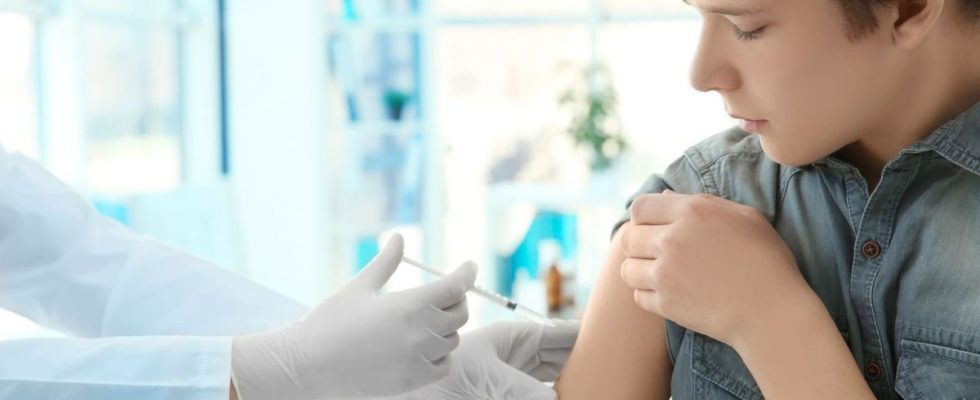Published on
Updated
Reading 2 min.
The Demain sans HPV collective, comprising ten associations which fight against diseases caused by the papillomavirus, takes stock of the government’s actions in this area. It recommends three actions to be implemented to improve the fight against this virus responsible for cancer.
The human papillomavirus (HPV) is responsible for ENT and anogenital cancers, all of which are preventable. For this to happen, vaccination coverage against this virus would need to reach 80%. Note that regular screening by smear also constitutes an effective preventive measure for cervical cancer. Three measures must be adopted urgently to achieve this, according to the Demain sans HPV collective.
Teaching parents and children
To improve the vaccination of adolescents, particularly that of boys, the collective advocates a “improving knowledge of the risks associated with papillomaviruses“in order to obtain”their support and informed choice“.
For François Vié Le Sage, pediatrician member of the AFPA, the HPV vaccine should be combined with the DT Polio booster, at the age of 11. “It is easier for parents to combine 2 vaccines in an appointment, I would even say that it may seem much more logical than having to make an appointment specifically for HPV vaccination. It would be appropriate to inform health professionals of this double vaccination which is already included in the general vaccination course,” he explains.
“This double vaccination must be prepared during consultations for older children. Applying it widely would represent a strong opportunity for health professionals to improve vaccination coverage of our population.“.
Better train adolescents during sexuality education sessions
To better talk about HPV and its risks, the collective is calling for discussions during sexuality education classes. Indeed, according to the law of July 4, 2001 “information and education on sexuality are provided in schools, colleges and high schools at least three sessions per year and by homogeneous age groups..
But the figures show that these sessions are not always carried out in practice. For Julia Charbonnier, director of the Actions Stratégies association, “these sessions which, remember, are compulsory, must be taught each year from the preparatory course to the final year. We would therefore have many opportunities, between 27 and 36 sessions in total, to educate children and then adolescents about HPV prevention.
Catch up on the accumulated delay over several years
According to the collective, “France has been lagging behind in vaccinations for 15 years, with a significant number of young people not having benefited from vaccination since its creation. It is thus estimated that there is a cumulative delay of 4 million unvaccinated people aged 20 to 26..
He therefore campaigns for an expansion of vaccination “of all young adults (women and men) up to 26 years old”what “would ensure gender equity and the desexualization of HPV vaccination, which is currently only recommended in this age group for MSM (Men who have Sex with Men).
For Gwenaël Ferron, surgical oncologist at the IUCT in Toulouse and Vice-President of the SFCO, “In Sweden, vaccinated women between the ages of 20 and 30 had a 62% reduced risk of developing cervical cancer compared to unvaccinated women..
